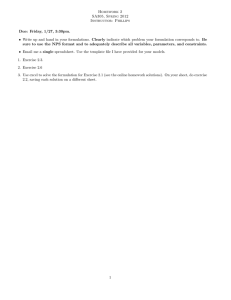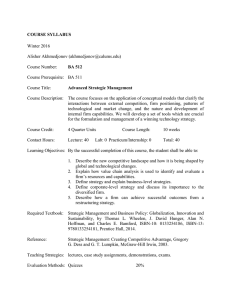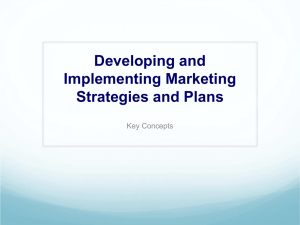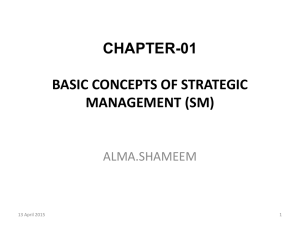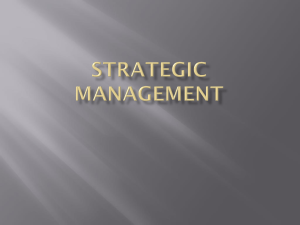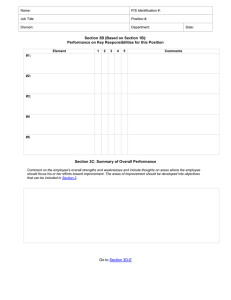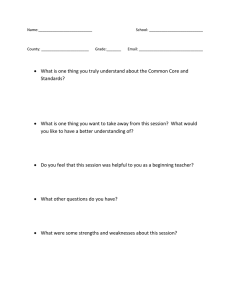Strategic Management: Concepts, Analysis, and Implementation
advertisement
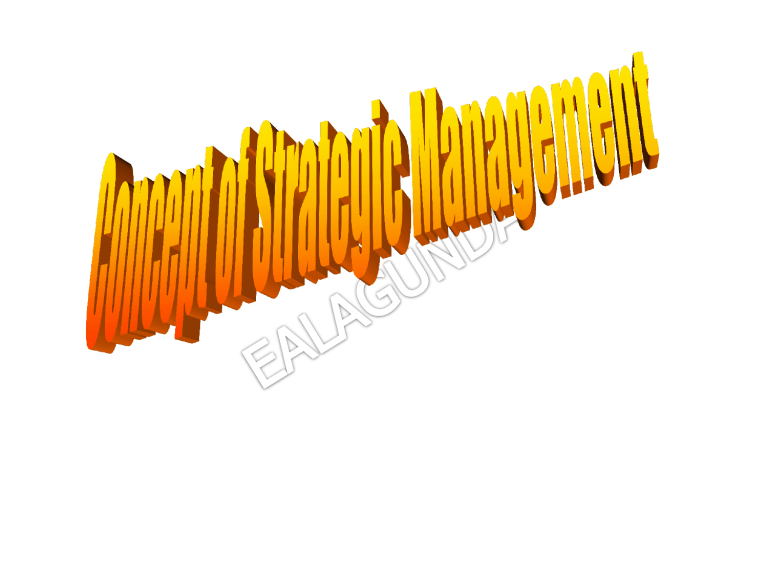
Strategic Management • Determining the mission and goals of an organization within the context of its external and internal environments Analysis of opportunities/threats Analysis of strengths/weaknesses Establishment of mission/goals Formulation of strategies Implementation of strategies Strategic control activities Evolution of Strategic Management • Ford and Carnegie Foundation funded an analysis of school curricula and teaching (1950s) GORDON-HOWELL REPORT BUSINESS POLICY Formal business education broadened integrating accounting, finance, marketing, management, economic STRATEGIC MANAGEMENT Integrating the functional areas to attain consistent direction, capitalizing on strengths, deemphasizing weaknesses relative to external environment Planning Process BASIC FINANCIAL PLAN Operational control through the meeting of budgets FORECAST-BASED PLAN Planning for growth by trying to predict the future EXTERNALLYORIENTED PLAN Strategic planning by being responsive to markets STRATEGIC MANAGEMENT Manage resources to develop competitive advantage and future success Strategic Management Model EXTERNAL ENVIRONMENTAL OPPORTUNITIES/THREATS Macroenvironment and Industry Environment THE INTERNAL ENVIRONMENT Organization’s Resources, Mission and Goals STRATEGY FORMULATION Corporate Strategy, Business Unit Strategy, Functional STRATEGY IMPLEMENTATION Structure, Leadership, Power and Culture STRATEGIC CONTROL Strategic Control Process and Performance RELEVANCE OF STRAT MANAGEMENT • Match between organization’s environment and its strategy, structure and processes ORGANIZATION’S PERFORMANCE Elements of Strat Management ENVIRONMENTAL SCANNING SWOT/TOWS Analysis STRATEGY FORMULATION Mission, objectives, strategies, policies STRATEGY IMPLEMENTATION Programs, budgets, procedures EVALUATION AND CONTROL Performance analysis and feedback mechanism Strategic Change • NEW CHIEF EXECUTIVE OFFICER • INTERVENTION BY EXTERNAL INSTITUTION • RECOGNITION OF PERFORMANCE GAP Key Strategic Questions • Where is the organization now? • If no changes are made, where will the organization be in the coming years? Are the answers acceptable? • If the answers are not acceptable, what specific actions should management undertake? What are the risks and payoffs involved? Strategic Decisions • Deal with the long-run future of the entire organization RARE Decisions are unusual and no precedent to follow CONSEQUENTIAL Decisions commit resources and demand commitment DIRECTING Decisions set procedures for lesser decisions and future actions STRATEGIC MANAGEMENT Set of managerial decisions that determines the longrun performance of an organization
